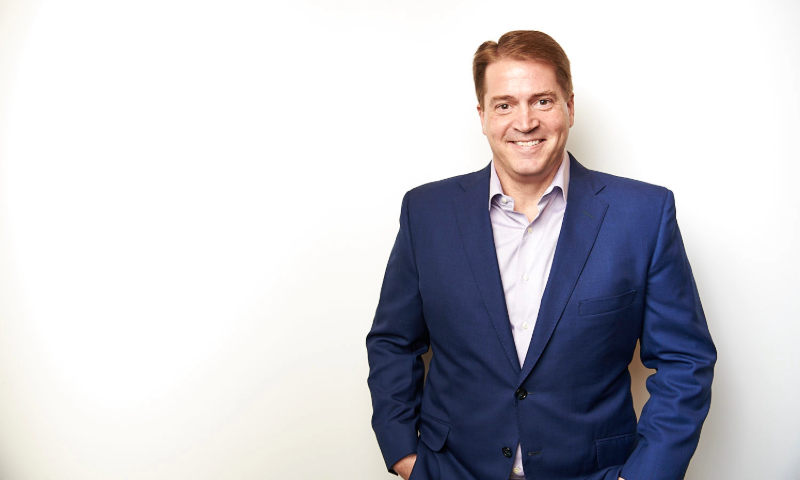Steven Toy has been sitting at the intersection of education, artificial intelligence, and mobile applications for quite some time. He has been involved in adult literacy for almost his entire professional life, including work at the Board level with ProLiteracy, and other literacy programs. Before Memrise, Steve journeyed to the AI realm at EY, where he started deploying AI techniques for real-world applications and benefits. He brought that experience to Apalon, where he was responsible for a portfolio of over 50 mobile applications. This confluence of experiences is tailor-made for shepherding a language-learning company through the explosion of opportunity technology provides.
Recently, in an exclusive interview with Digital First Magazine, Steve shared his professional trajectory, what sets Memrise apart from other market competitors, the secret sauce behind Memrise’s remarkable success, personal role model, significant career milestone, future plans, words of wisdom, and much more. The following excerpts are taken from the interview.
Hi Steven. Can you share with us the ‘backstory” of how you decided to pursue a career path in e-learning?
Early in my career, when looking for the “thing” I’d do to give back, I struggled with the options, as none of the usual choices lit a spark in me. Then I stumbled on Vision Literacy in Northern California, an adult literacy program.
I joined up and got paired with an adult who had graduated high school in Northern California but still couldn’t read. We worked together for several years, and during that time, he went from below to above the poverty line and got off of all government assistance.
That win, coupled with the whole “Give a man a fish, feed him for a day. Teach a man to fish, feed him for life.” philosophy, really set the hook for me and really covers the “learning” part of e-learning in your question.
The “e” portion of e-learning came about because I’m a bit of a geek at heart. I am always trying to use tech to improve things, and learning is a great candidate for tech improvements.
Brief us about the mission and vision of Memrise. What sets it apart from other market competitors?
Memrise’s Vision is to “Enrich your mind, to enrich your world.” We strive to accomplish this Vision with a Mission of “Helping people acquire a language, profitably.”
Of course, one can enrich one’s mind in many ways, but we chose language as our starting point for several reasons, not the least of which is to understand ourselves and each other, to make friends, and to discover new cultures. Said another way, we help people enrich their minds and worlds by helping people understand each other.
With this fundamental Vision and Mission, we have chosen to teach language in a manner more akin to going to a country that speaks the language and immersing yourself. By that I mean we try to get you using the language you are learning as soon as possible.
As a result, unlike most language learning apps, we don’t offer many grammar drills and memorization routines. Instead, we teach you some words and then have you hear those words in real-world contexts with YouTube and TikTok videos.
We also encourage you to use those words early in the learning journey by simulating conversations with large language models (LLMs). These LLMs conveniently lack human judgment in their algorithms. Fear of being judged by others thwarts most language learners from trying to speak early in the process.

You are also the Founder of Just a Bite Better LLC. What was the inspiration behind this company?
The inspiration behind Just a Bite Better (JaBB) can be traced back to my geeky nature, which I mentioned earlier. As all of these new AI technologies have been unfolding before us, I wanted to start playing with them to understand them. To do that, I needed a problem to solve.
I have run triathlons for decades, which usually involve tracking certain information, such as how many miles you ran, swam, or biked, how well you slept, etc. However, tracking what you eat has always been just too time-consuming and complicated to bother with. That became the problem to solve as new technology presented options that didn’t exist before.
Can you share some valuable lessons you’ve learned in your career that have helped you succeed as a leader at Memrise?
No matter how hard you try and how much you plan, more of your ideas will fail than succeed. That doesn’t mean you shouldn’t try hard and plan thoughtfully. Just do it fast so you can find good ideas as fast as possible. More swings of the bat are almost always better.
What do you feel makes a Language Learning App effective and attractive?
This is a good question, and the answer is remarkably unintuitive at first. This sort of question usually elicits answers like “large dictionaries,” “good gamification,” and other feature-based responses.
However, user testing tells us that the language learning app that actually gets you speaking to others in a new language is certainly the most effective, as that goal relates to the users’ ultimate goal.
Whether that outcome is the most attractive to people shopping for an app is another story.
How has a failure, or apparent failure, set you up for later success? Do you have a “favourite failure” of yours?
As I mentioned earlier, failure is all but guaranteed if you are in the game striving for seemingly impossible goals. This is a hard lesson to learn. I certainly didn’t learn it after my first ideas failed to take flight. Somewhere along the line, a failure straw (I can’t exactly say which one it was) broke the camel’s back and caused me to stop trying to avoid failure and just do it faster. The failure to see this meta-lesson about failure earlier in my career is the one I have kept with me.
The challenge for the reader is whether they can follow the wise Charlie Munger’s advice about “Learning from the success and failure of others [as] the fastest way to get smarter and wiser without a lot of pain.”
Memrise has been a recipient of several awards and accolades over the years including Best App of 2017, Best of 2016 Self Improvement, Best Apps of 2015, and Top developer badge among others. What is the secret sauce behind its remarkable success?
It is always hard to boil success down to one thing, but if pressed to do so, I would say that Memrise’s success comes from our complete and total belief that the best way to learn a language is to get in the game and use it. It is how we all learned our first language.
This belief has led us to build different features and forsake others, and that has made all the difference.

Who is your modern-day hero and why?
I have never been given to hero worship, but the first person that comes to mind when you ask the question is Ruth Colvin (https://en.wikipedia.org/wiki/Ruth_Johnson_Colvin), with whom I have served as a Board Member of ProLiteracy Worldwide. Ruth turned 107 late last year and still works to further the cause of adult literacy. A true inspiration.
What do you feel has been your ‘career-defining’ moment?
I certainly hope that moment has not been written yet. However, to date, I would say helping Memrise emerge from a crowded pack of language learning apps to be #2 on the Time Magazine list of the World’s Top EdTech Companies feels pretty good.
Where do you see yourself in the next 5 years?
I have not grown tired of helping people accomplish their objectives in life by improving their minds and obtaining the requisite tools, such as reading, to succeed in the world. I imagine I will still be doing that years from now. I’ll certainly be doing exactly that if I follow Ruth’s incredible example.
What advice do you have for those looking to grow their careers in your industry?
However you define my industry (EdTech, language learning, mobile apps, etc.), the advice would be the same: Don’t stop learning new stuff, don’t stop trying new things, and don’t stop swinging the bat.






